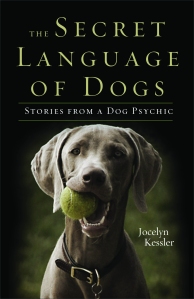In the last few years, the luxury pet market has become a very lucrative consumerist niche. Thus, it is not surprising that Jocelyn Kessler’s The Secret Language of Dogs made it to print. The author is a Hollywood-based “dog psychic” who aids humans in better understanding their canine companions, and her book is a compendium of anecdotes and lessons from the various cases she has worked with.
Kessler makes many valid points about the nature of dogs, particularly their ability to truly live in the moment, and humans’ unconscious mistreatment of them. The dogs in her stories would not by any means appear abused to the common observer, and Kessler is most concerned with how humans subtly hurt their dogs, most notably by conferring their negative emotions and insecurities onto the innocent animals. This is particularly relevant, in that she addresses the rather disturbing trend of treating pets as accessories rather than sentient beings; when dogs are bred to be so tiny as to not have properly functioning organs, only to fit easily in a purse, humans’ priorities have definitely shifted for the worse.
That said, there were structural and editorial problems with this book that could not be easily ignored. The idea that Kessler can divine the thoughts of any dog she comes in contact with is somewhat ludicrous and admittedly very difficult to accept by anyone who does not already embrace the possibility of psychic ability. However, the most distracting issue is the repetitiveness of the book; after a point, the cases Kessler describes bleed into one another, few of them particularly memorable or easy to visualize. The crux of the stories is that humans are bad and dogs are good and, while no dog lover will quibble with this, Kessler’s descriptions of her visions and sensations can definitely elicit some eye-rolling. The author is aware of the skepticism with which her work and special talent are sometimes regarded and says she does not allow it to interfere with her mission. It is admirable that Kessler wishes to challenge society’s ideas about the intelligence and well-being of dogs, but her points might have been more powerful without all the metaphysical references.










